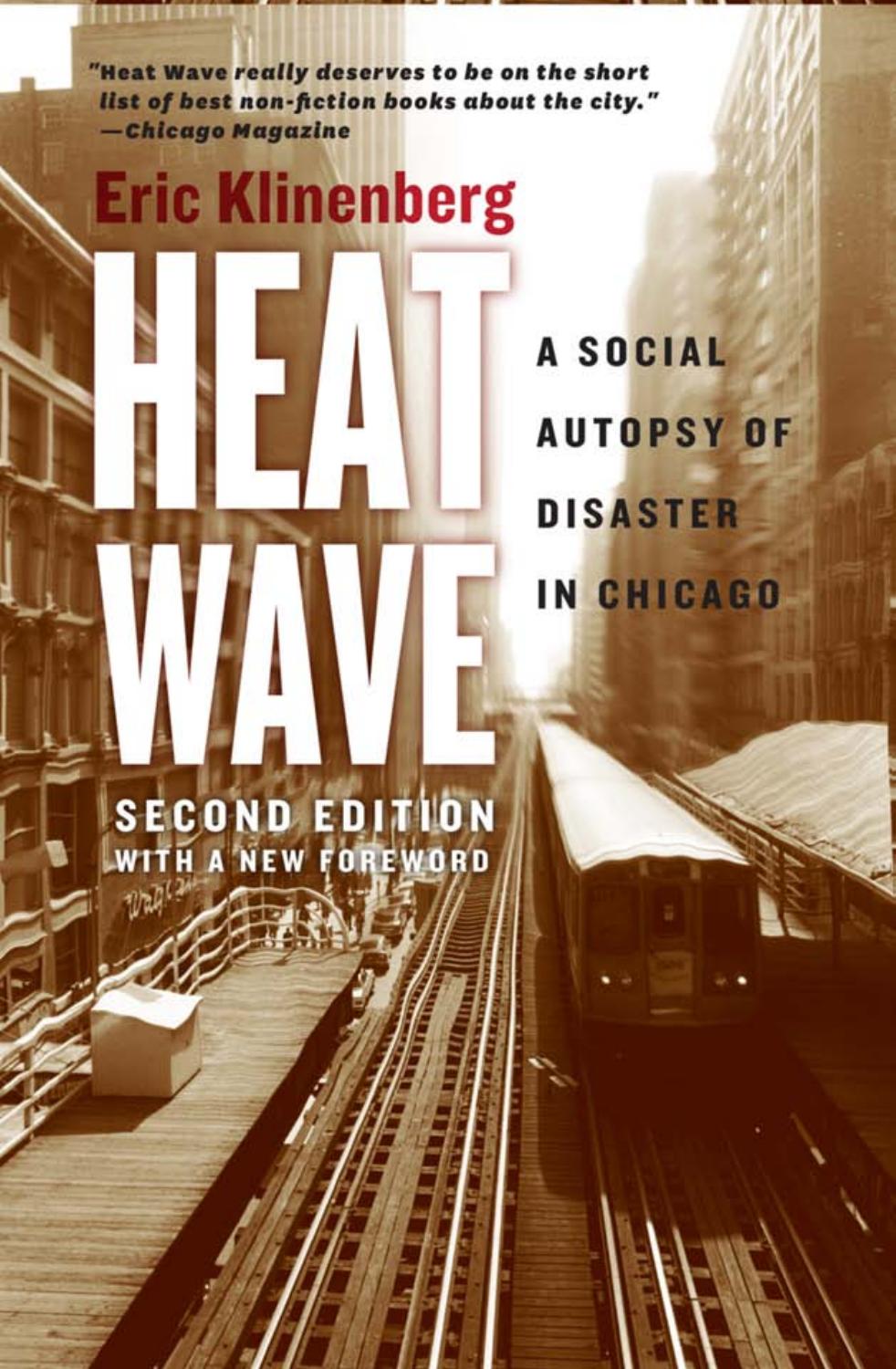Heat Wave: A Social Autopsy of Disaster in Chicago by Eric Klinenberg

Author:Eric Klinenberg [Klinenberg, Eric]
Language: eng
Format: epub, pdf
Publisher: University of Chicago Press
Published: 2015-05-06T05:00:00+00:00
Figure 38. A frustrated Chicagoan shows reporters that her apartment has lost all water pressure during the heat wave. Source: ABC7. Courtesy of WLS-TV.
What no one in Chicago could anticipate was that, long after the city had restored its capacity to supply water, the local government would begin a policy of turning off the taps of Chicago residents who were unable to pay their water bills. Impoverished and ill seniors whose fixed incomes were too low to cover their water bills were not spared from such treatment. In the pure spirit of the entrepreneurial state, by the late 1990s the Chicago Water Department had decided that the most effective way to handle delinquent customers was to cut off their supply and punish them with heavy fees. City officials hoped that adopting a strategy similar to the one they used to collect parking fees—depriving debtors of the resource they have mishandled—would help turn the Water Department into a greater revenue generator for the city.57 What they failed to consider, however, was that water, unlike a car, is a resource that people need to survive, and that the punitive policy would likely prove most devastating for the Chicago residents whose lives were already most devastated.
Predictably, the policy took a major toll on the city’s poor elderly, including some of the seniors I had gotten to know. In a 1998 discussion, one Water Department employee who handles “shut-off” cases told me that he could not make a special exception and turn the water back on in the home of one senior with a severe illness whose doctor had called to complain, because the case was not unusual: “I get requests like that all the time. Constantly. I’ve got people coming to me everyday with stories like that. So what am I supposed to do?” For this administrator, if not for his department, the prevalence of shut-offs was a sign of irresponsible consumer spending rather than a signal that the agency’s policy response had endangered the lives of the very people that the city government, with its special programs to support the elderly, promises to protect.
WELFARE STATES AND EXTREME EVENTS
Extreme events and disasters pose exceptional challenges for governments and societies, but their potential to cause physical damage and social suffering makes them crucial tests of social protection systems. As public health scholar Rodrick Wallace explains, “Extreme events—‘emergencies’ . . . delimit and define our lives, both individually and in community. The ability to control both the occurrence and the consequences of such extremes is the hallmark of effective government, a government which retains the ‘mandate of heaven.’”58 When a government mismanages a crisis it can use its experience as a guide for building new forms of social protection, but doing so requires an open assessment of how its policies support or imperil its constituents. In the years following the heat wave Chicago has expanded its programs for supporting seniors during heat crises, developed a system for tracking isolated seniors and contacting them when there is severe weather, and continued its Benefits Eligibility Checklist and enrollment service.
Download
Heat Wave: A Social Autopsy of Disaster in Chicago by Eric Klinenberg.pdf
This site does not store any files on its server. We only index and link to content provided by other sites. Please contact the content providers to delete copyright contents if any and email us, we'll remove relevant links or contents immediately.
| Africa | Americas |
| Arctic & Antarctica | Asia |
| Australia & Oceania | Europe |
| Middle East | Russia |
| United States | World |
| Ancient Civilizations | Military |
| Historical Study & Educational Resources |
Cat's cradle by Kurt Vonnegut(15324)
Pimp by Iceberg Slim(14476)
4 3 2 1: A Novel by Paul Auster(12363)
Underground: A Human History of the Worlds Beneath Our Feet by Will Hunt(12081)
The Radium Girls by Kate Moore(12012)
Wiseguy by Nicholas Pileggi(5765)
The Fire Next Time by James Baldwin(5422)
Perfect Rhythm by Jae(5393)
American History Stories, Volume III (Yesterday's Classics) by Pratt Mara L(5293)
Paper Towns by Green John(5174)
Pale Blue Dot by Carl Sagan(4993)
A Higher Loyalty: Truth, Lies, and Leadership by James Comey(4946)
The Mayflower and the Pilgrims' New World by Nathaniel Philbrick(4484)
The Doomsday Machine by Daniel Ellsberg(4480)
Killers of the Flower Moon: The Osage Murders and the Birth of the FBI by David Grann(4433)
The Sympathizer by Viet Thanh Nguyen(4382)
Too Much and Not the Mood by Durga Chew-Bose(4333)
The Borden Murders by Sarah Miller(4302)
Sticky Fingers by Joe Hagan(4185)
